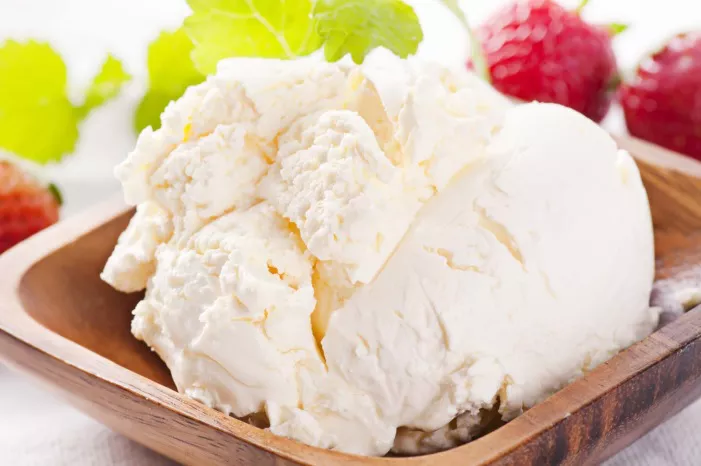The coconut, often referred to as the “tree of life,” has been an integral part of tropical cultures for centuries. Beyond its exotic allure and delicious taste, the coconut offers a myriad of health benefits that make it a true superfood. From its nutrient-rich flesh to its versatile oil and water, coconut has garnered increasing attention for its potential positive impacts on overall health and well-being. In this comprehensive article, we will delve into the numerous ways in which coconut can be good for you, exploring its nutritional value, potential health benefits, and practical uses in today’s modern world.
The Nutritional Powerhouse of Coconut
Coconut, scientifically known as Cocos nucifera, is renowned for its exceptional nutritional composition. Each component of this tropical treasure, including its flesh, water, and oil, offers a unique set of nutrients that contribute to its status as a healthful food source.
Coconut Flesh: The white, meaty flesh of the coconut is rich in dietary fiber, essential vitamins, and minerals. It is a valuable source of medium-chain triglycerides (MCTs), particularly lauric acid, which possesses antimicrobial and anti-inflammatory properties. Lauric acid is also found in breast milk, highlighting its significance for human health.
Coconut Water: Often referred to as “nature’s sports drink,” coconut water is a hydrating beverage packed with electrolytes like potassium, sodium, and magnesium. It is low in calories and fat, making it an excellent choice for replenishing fluids after physical activity.
Coconut Oil: Coconut oil, derived from the coconut’s copra (dried kernel), is prized for its high concentration of MCTs, specifically lauric acid, capric acid, and caprylic acid. It is one of the healthiest cooking oils available and is celebrated for its versatility and potential health benefits.
Health Benefits of Consuming Coconut
The consumption of coconut in various forms has been associated with a range of health benefits. From boosting heart health to supporting weight management, here are some of the ways in which incorporating coconut into your diet can be good for you.
Heart Health: Coconut oil’s high lauric acid content has been linked to improved heart health by increasing levels of HDL (good) cholesterol and reducing levels of LDL (bad) cholesterol. These effects may help lower the risk of heart disease.
Weight Management: MCTs found in coconut oil can boost metabolism and increase feelings of fullness, making it a useful tool for weight management. Incorporating coconut oil into a balanced diet may assist in calorie control.
Digestive Health: Coconut flesh contains dietary fiber that aids digestion, promotes regular bowel movements, and reduces the risk of constipation. The fiber also supports the growth of beneficial gut bacteria.
Skin and Hair Care: Coconut oil is a natural moisturizer that can hydrate the skin and hair. Its antibacterial properties can help prevent acne and skin infections. Additionally, it may reduce the appearance of wrinkles and fine lines.
Antioxidant Properties: The antioxidants in coconut, including phenolic compounds and vitamin C, help combat free radicals in the body, reducing oxidative stress and potentially lowering the risk of chronic diseases.
Immune Support: Lauric acid in coconut oil possesses antimicrobial and antiviral properties, making it a valuable ally in supporting the immune system’s defenses against infections.
Bone Health: The calcium and phosphorus content in coconut contributes to strong bones and teeth. These minerals are vital for maintaining bone density and overall skeletal health.
Blood Sugar Control: Some studies suggest that the consumption of MCTs from coconut oil may improve insulin sensitivity, helping to regulate blood sugar levels and reducing the risk of type 2 diabetes.
Brain Health: MCTs, particularly caprylic acid, have been studied for their potential role in cognitive function. They are a readily available source of energy for the brain and may support brain health.
Anti-Inflammatory Effects: Coconut’s MCTs and phenolic compounds may have anti-inflammatory properties, reducing inflammation in the body and potentially benefiting individuals with inflammatory conditions.
Practical Uses of Coconut
Coconut’s versatility extends beyond its nutritional benefits. It is widely used in various forms and can be incorporated into numerous aspects of daily life, from cooking to skincare and beyond.
Culinary Uses: Coconut is a staple ingredient in many tropical cuisines. It can be used in both sweet and savory dishes, from curries and stir-fries to desserts like coconut milk rice pudding and coconut macaroons.
Coconut Oil: Coconut oil is a versatile cooking oil that can withstand high temperatures, making it ideal for frying, sautéing, and baking. It can also be used as a dairy-free alternative in recipes, such as vegan desserts and non-dairy coffee creamer.
Coconut Milk and Cream: Coconut milk and cream are common ingredients in a variety of dishes, adding a creamy texture and a subtle coconut flavor. They are used in curries, soups, sauces, and desserts like coconut ice cream.
Coconut Water: Coconut water can be enjoyed on its own as a refreshing beverage or used as a base for smoothies and cocktails. Its natural electrolyte content makes it an excellent choice for rehydration.
Coconut Flour: Coconut flour, made from dried coconut meat, is a gluten-free flour alternative. It is rich in fiber and can be used in baking, including muffins, pancakes, and gluten-free bread.
Skincare: Coconut oil serves as a natural moisturizer for the skin and can be applied topically to hydrate and soothe dry skin. It is also used in various skincare products, including lotions and lip balms.
Hair Care: Coconut oil is widely used for hair care as it can help nourish and strengthen hair, reduce dandruff, and promote healthy growth. It is commonly applied as a hair mask or conditioner.
Oil Pulling: Oil pulling is an ancient oral hygiene practice that involves swishing coconut oil in the mouth to improve oral health. It is believed to reduce harmful bacteria and promote healthy gums.
Aromatherapy: The aroma of coconut is often used in aromatherapy to create a relaxing atmosphere. Coconut-scented candles, essential oils, and diffusers are popular choices for creating a soothing ambiance.
DIY Beauty Products: Many people use coconut oil as a base for creating homemade beauty products, including scrubs, body lotions, and facial masks.
Considerations and Precautions
While coconut offers numerous health benefits, it’s essential to approach its consumption with awareness and moderation. Here are some important considerations and precautions:
Moderation: Like any food, coconut should be consumed in moderation as part of a balanced diet. Excessive consumption of coconut products, particularly coconut oil, can lead to an increase in calorie intake and potential weight gain.
Allergies: While coconut allergies are relatively rare, some individuals may experience allergic reactions, such as itching, hives, or gastrointestinal discomfort, when consuming coconut or coconut-derived products.
Saturated Fat: Coconut oil is high in saturated fat, which has been associated with an increased risk of heart disease in some studies. However, the type of saturated fat in coconut oil is primarily composed of MCTs, which behave differently in the body compared to long-chain saturated fats.
Individual Tolerance: Some individuals may experience digestive discomfort when consuming high amounts of coconut products, particularly if they are not accustomed to them. It’s advisable to introduce coconut into your diet gradually.
Quality Matters: Choose high-quality coconut products, such as organic virgin coconut oil, to ensure you are getting the best nutritional benefits. Avoid heavily processed or hydrogenated coconut oil.
Conclusion
Coconut, nature’s nutrient-rich treasure, offers a wide array of health benefits and practical uses that span culinary delights, skincare, and overall well-being. From its heart-healthy potential to its role in weight management, coconut’s versatility and nutritional value make it a valuable addition to a balanced diet.























